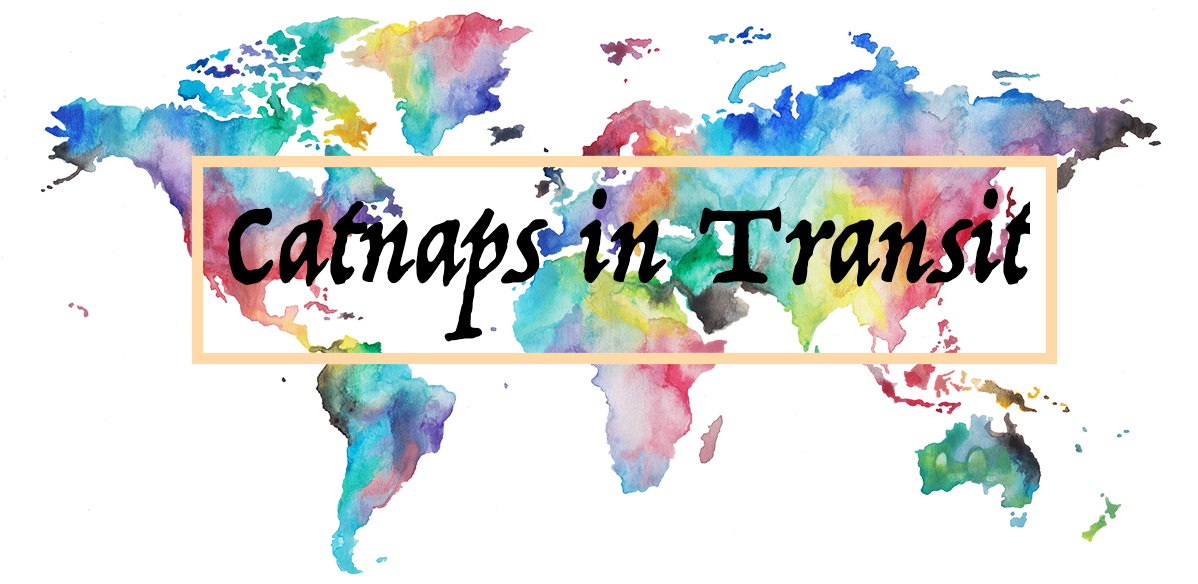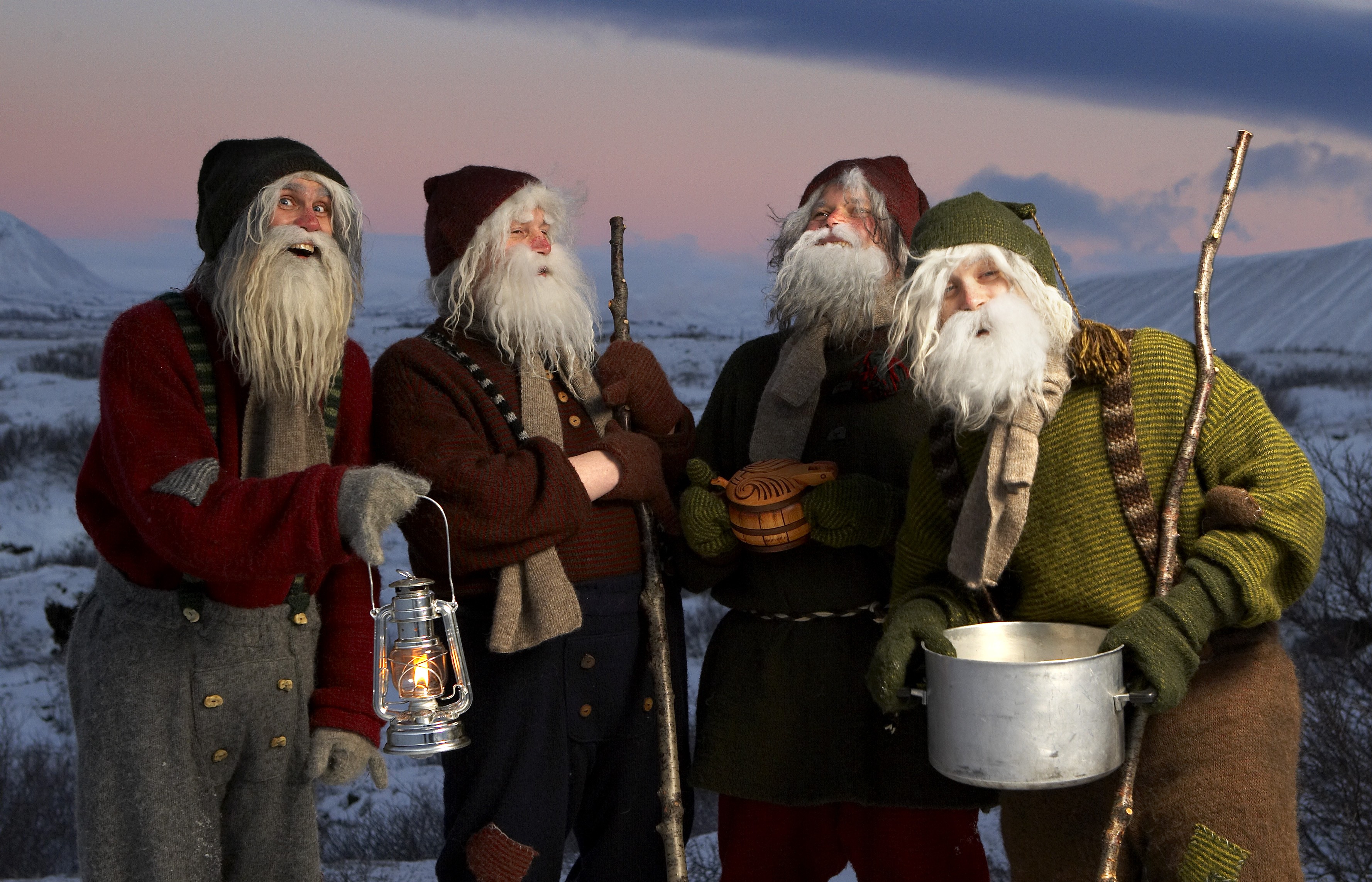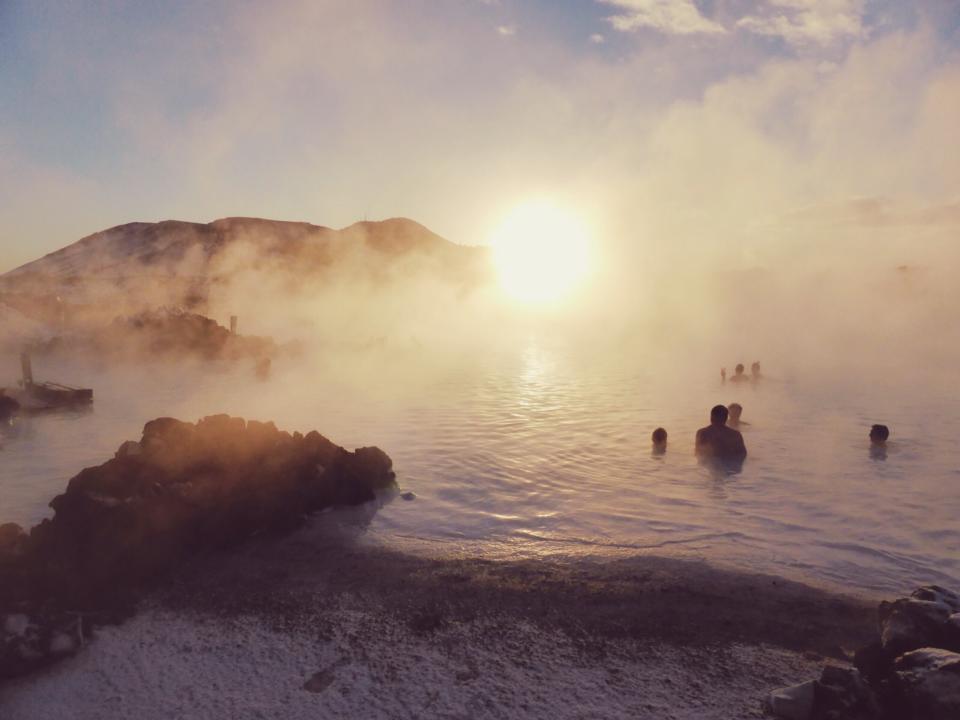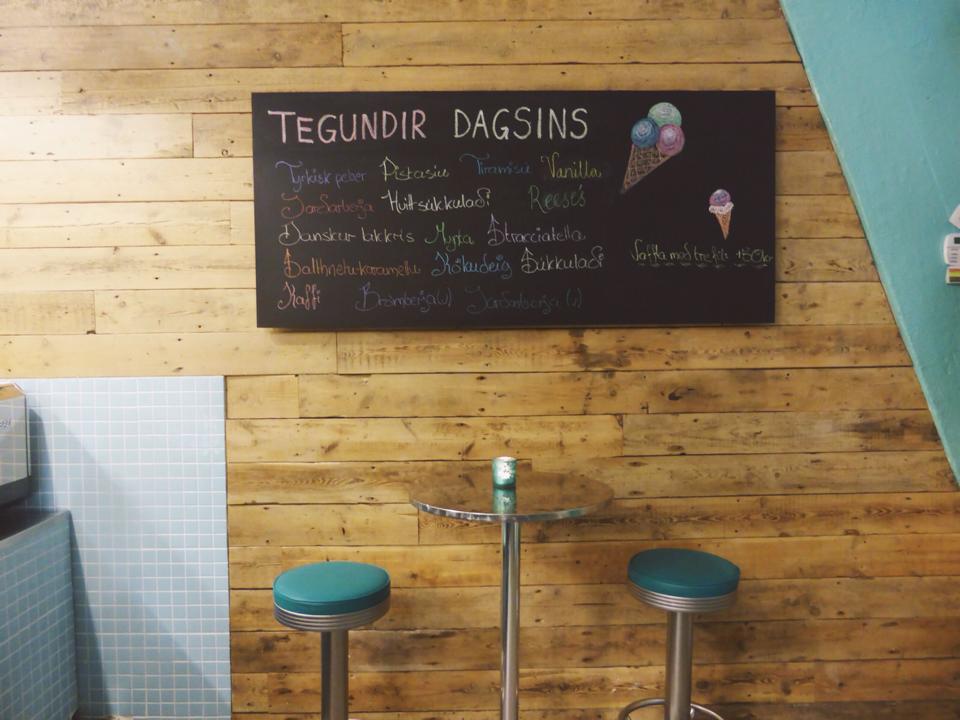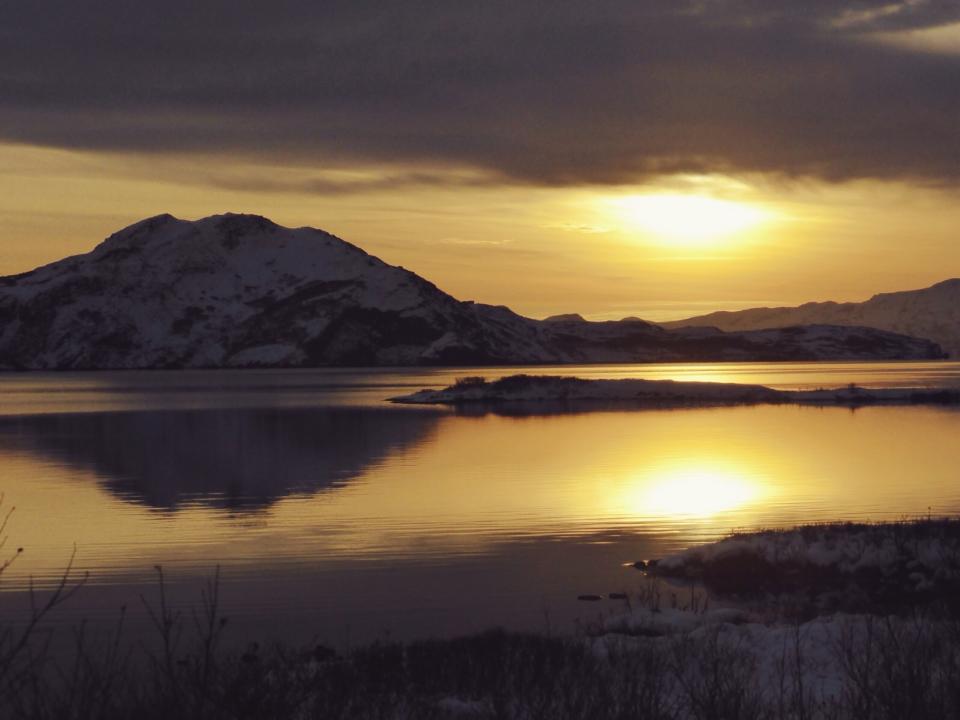Iceland
Christmas in Iceland
Having spent a few months jumping around the world with no real plans I found myself far from home with no plans in sight for the holiday season. I had recently found myself back in Iceland and realised I would be experiencing my first Christmas in Iceland. Which kind of made my lonely holiday season a bit more exciting.
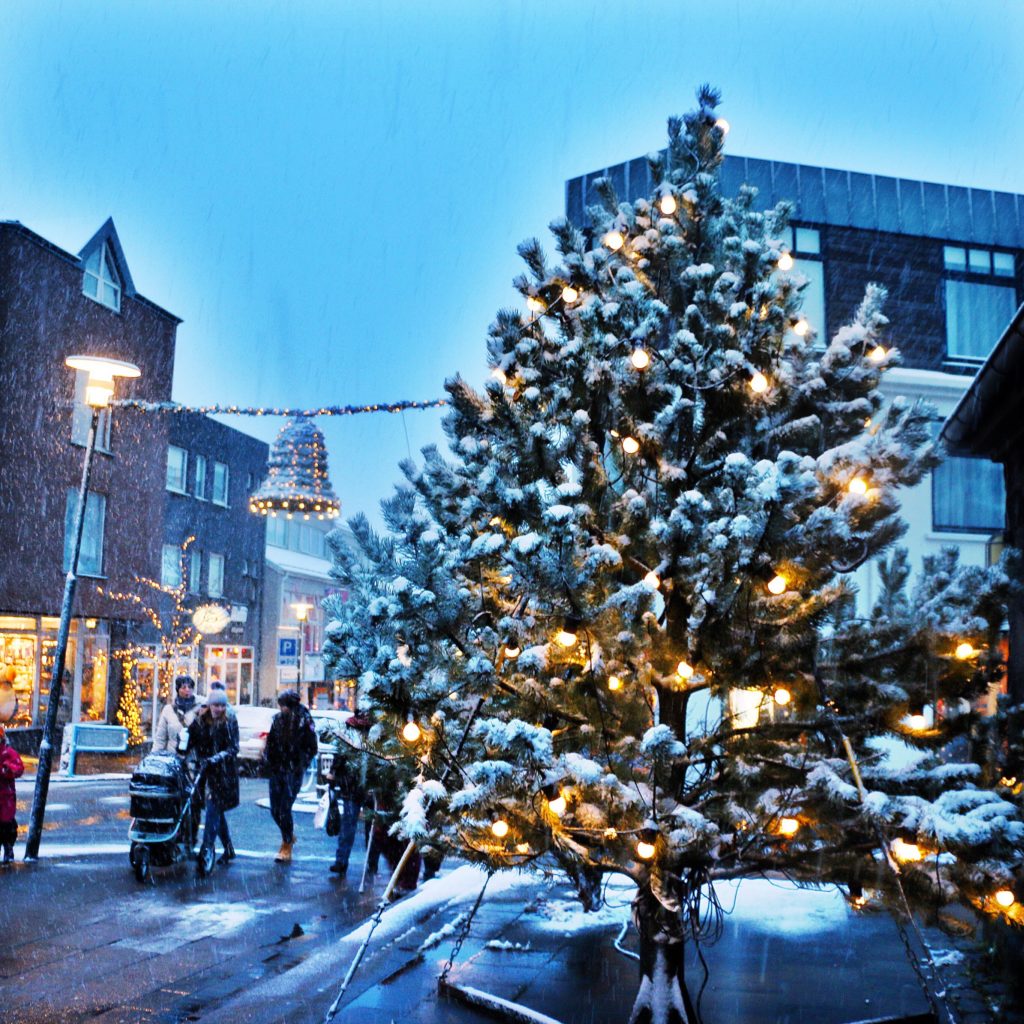 Christmas in Iceland is taken very seriously. Apparently locals go to a big effort to clean the home, everyone gets dressed up, people buy the best food (at least the best available during Icelandic winter), houses are decorated with cozy candles, lights and stars and everyone dedicates a lot of time to the kitchen. Like in many parts of the world the celebration really revolves around food.
Christmas in Iceland is taken very seriously. Apparently locals go to a big effort to clean the home, everyone gets dressed up, people buy the best food (at least the best available during Icelandic winter), houses are decorated with cozy candles, lights and stars and everyone dedicates a lot of time to the kitchen. Like in many parts of the world the celebration really revolves around food.
The main Christmas celebrations last three days in Iceland – starting on the most important evening – Christmas Eve.
The country closes early on Christmas Eve and the family celebrations start. I was lucky enough to be invited along as an adopted family member for a genuine Icelandic Christmas Eve dinner which was pretty special.
Apparently this Christmas Eve dinner is considered the most special meal of the year for many people in Iceland and the feast I was a part of was extremely impressive (including many vegan treats especially for me).
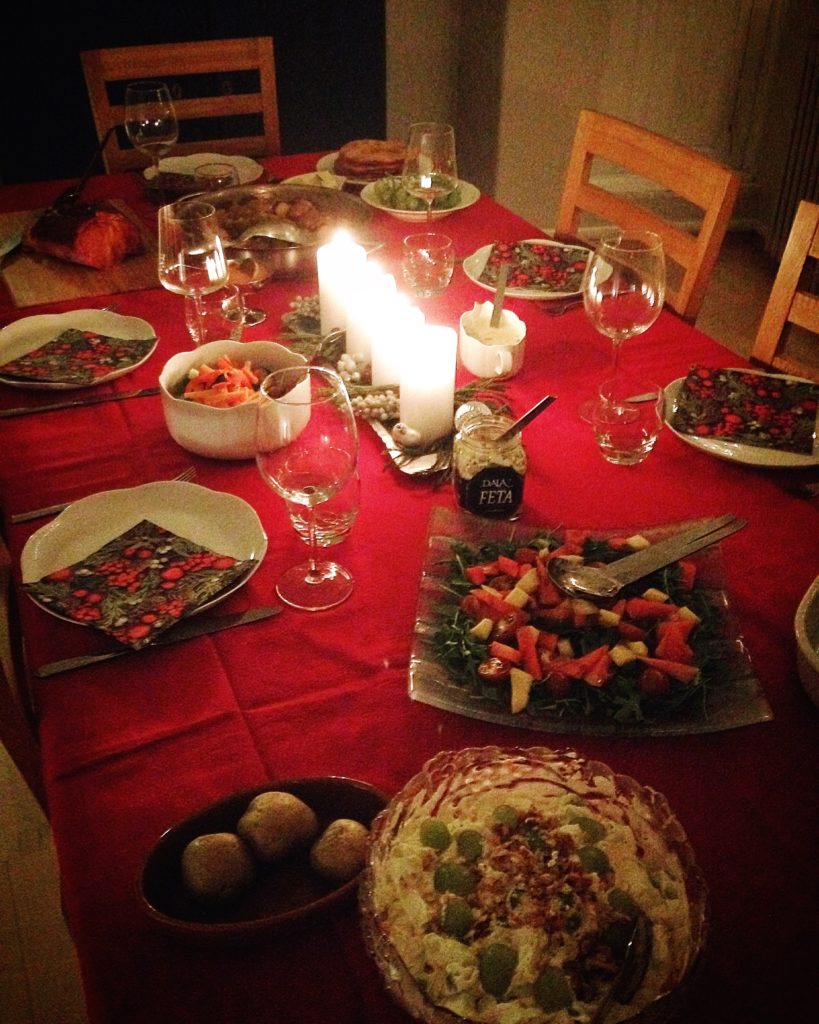 The Christmas Eve tradition originates as an old Catholic custom where people would have a wake the night before big church holidays as it was often believed that a new day started at 6 p.m., which is when Icelanders traditionally either go to church or begin the festivities at their home.
The Christmas Eve tradition originates as an old Catholic custom where people would have a wake the night before big church holidays as it was often believed that a new day started at 6 p.m., which is when Icelanders traditionally either go to church or begin the festivities at their home.
So 6pm on Christmas Eve is apparently a national eating time.
From what I have learnt Icelanders celebrate 13 days of Christmas. Starting with the Christmas feast on December 24 the celebrations officially end on January 6, which is when all Christmas decorations are removed from streets and houses. This traditions is believed to extend back to the 4th and 5th centuries in Europe where the birth of Christ was celebrated on December 25th and his christening and the three wise men were celebrated on January 6.
My favourite part of Icelandic Christmas is surprisingly not the feast (which was amazing), but the notorious Yule Lads. Icelanders have not one, but thirteen Santas, or Yule Lads. These lads are not related to Santa Claus in any way. They are descendants of trolls and were originally used to scare children. Unfortunately the modern age has made them friendlier – but you have to appreciate their cool names and traditional habits:
- Stekkjastaur (Sheep-Cote Clod)
- Giljagaur (Gully Gawk)
- Stúfur (Stubby)
- Þvörusleikir (Spoon-Licker)
- Pottasleikir (Pot-Licker)
- Askasleikir (Bowl-Licker)
- Hurðaskellir (Door-Slammer)
- Skyrgámur (Skyr-Gobbler)
- Bjúgnakrækir (Sausage-Swiper)
- Gluggagægir (Window-Peeper)
- Gáttaþefur (Doorway-Sniffer)
- Ketkrókur (Meat-Hook)
- Kertasníkir (Candle-Stealer)
The other thing I love about Christmas in Iceland is the country’s literary tradition:
Iceland sells more books per capita than any other nation in the world, and the vast
majority of them are sold in the lead-up to Christmas. In Iceland this is known as the Christmas Book Flood. The tradition in Iceland is that everyone must receive at least one book for Christmas to take to bed on Christmas Eve along with some chocolates. So, beginning in November, hundreds of books are published and the talk is all about books – in the media, in the workplace, among family and friends, and at Christmas parties. Once Christmas is over and the books have been read, everyone’s a critic, giving their views and opinions of that latest tome and whether it is as good, or better, as the author’s last one (What’s On, Iceland).
Christmas in Iceland seems to have a very unique charm and it was particularly special for me as it was my first white Christmas! Between snow, feasting, evil elves and many books I think it is a wonderful place to experience a completely different kind of Christmas!
